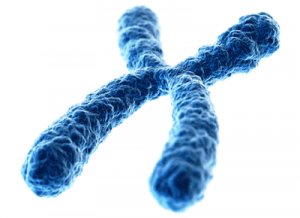 Researchers found that disruption of the TRPC5 gene causes obesity, behavioural problems and, in mothers, postnatal depression.
Researchers found that disruption of the TRPC5 gene causes obesity, behavioural problems and, in mothers, postnatal depression.
The discovery, reported in Cell, started with the investigation of two unrelated boys with severe obesity, anxiety, autism and behavioural problems triggered by sounds or smells. A team led by Professor Sadaf Farooqi (Institute of Metabolic Science), Professor Helen Firth (Dept of Medical Genetics) and Professor Yong Xu (Baylor College of Medicine, Houston, USA) found that the boys were missing a single gene, TRPC5, located on the X chromosome. Both boys inherited the gene deletion from their mothers, who had obesity and anxiety, but also experienced postnatal depression.
Male mice carrying a human TRPC5 genetic variant displayed the same features as the boys – weight gain, anxiety, reduced social interactions and aggressive behaviour. Female mice showed depressive behavior after giving birth and impaired care of their offspring. Remarkably, replacing the missing gene in neurons in the hypothalamus which make oxytocin, led to weight loss, reduced postnatal depression and anxiety, and improved maternal care. This research shows that TRPC5 plays a key role in the regulation of instinctive behavior by acting on neurons in this brain region.
To date, very little is known about postnatal depression, which affects more than one in 10 mothers and is linked to an increased risk of suicide. These findings may lead to new treatments (such as oxytocin agonists) for a condition which is often not taken seriously, despite accounting for one in five maternal deaths in high income countries.
